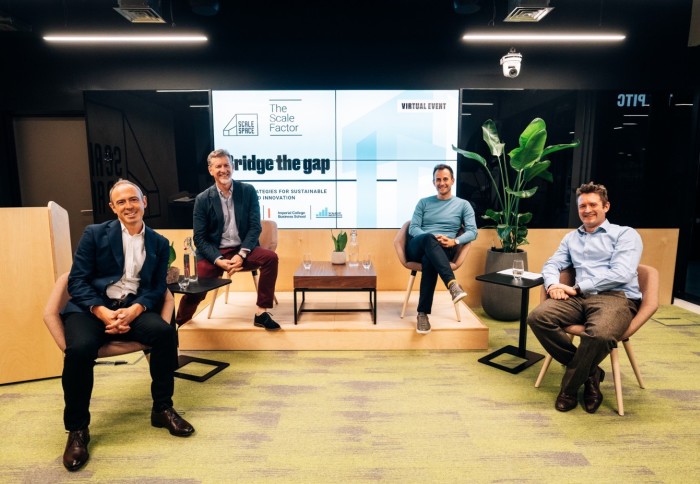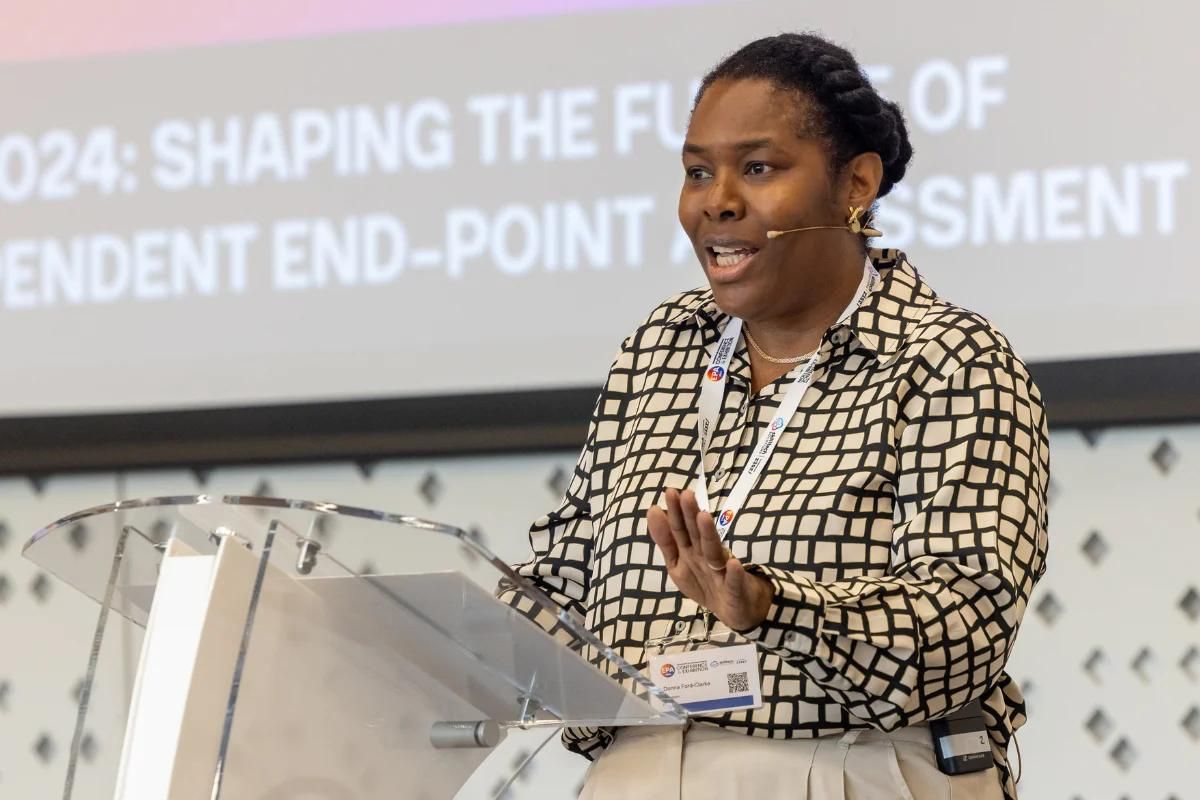£120bn of economic output could be lost by the end of 2029 if the skills ‘mismatch’ in the tech and scaleup sector remains unsolved

#SkillsMismatch needs urgent action to enable tech firms and scaleups to grow

Panelists debate the skills gap at The Scale Factor event. Photo credit: Dom Martin Photography
This insight came from an online panel discussion, The Scale Factor, the first of a new event series from Scale Space in partnership with Imperial College Business School.
A scaleup is a company that has at least 10 employees at the beginning of the firm being established, with an average annual return of at least 20% in the previous three years.
At the event, scaling experts from Imperial and the private sector called on the Government to unlock more investment locally and improve the attractiveness and awareness of careers in scaleups for school leavers and university graduates. They argued that ensuring graduates interested in business consider these kinds of careers, rather than focusing on areas like banking and accountancy, would stave off growing unemployment and enable tech and scaleup businesses to power economic growth.
Solving the skills ‘mismatch’
The speakers outlined five key areas that need to be addressed to help solve the skills ‘mismatch’ facing scaleup firms.
Irene Graham, CEO of the ScaleUp Institute called for the Government to increase local investment and empowerment. “Scaleups are hungry beasts which need to be fed the right talent at the right time, but we need to create a sustainable supply. This Government is focussed on ‘levelling up’ and it is important we get it right by seeing devolution at local level, and more empowerment and investment locally.”
Richard Haynes, Chief Commercial Officer, Avado, highlighted the importance of the private and public sectors coming together with the Government to create more accessible opportunities for young people to increase their skills.
He said: “The sheer volume of applicants from young people aged 18-22 to join the first cohort of Fast Futures is strong evidence in demand and desire for continued learning. It also creates a template in bridging the gap between full time education and work, and where the private and public sectors, together with Government, can create meaningful learning programmes that can upskill not just young people, but people at all stages in their careers who have been thrown into a state of flux because of the pandemic, and lacking the digital skills needed in their future career.”
Chris Yeh, Scaleup mentor and investor emphasised the important role that universities and the private sector have in creating an ecosystem for growth. He said: “Today, everyone has to see themselves as a life-long learner. This generation, and the next, are going to learn that constant learning is not only wise, but essential in order to keep up with the changing needs of companies, particularly for enhancing digital skills.
“London is very much like Silicon Valley and cooperation between institutions, academic and business are examples of one ecosystem coming together to create the new infrastructure needed to facilitate business growth and nurture talent. Scale Space is an excellent example of this, and what not only the UK, but other countries need to help companies scale.”
Dr Mark Kennedy, Associate Professor at Imperial College Business School addressed the reasons why students are still coming to study at business schools despite the uncertainty caused by the COVID-19 pandemic.
He said: “Part of the skills challenge is enabling businesses to be brave, and give young people license to do what perhaps the leaders don’t yet know how to do themselves. Our intake at Imperial this year, despite Covid-19, is full, and we are seeing students simply wanting to learn, and also very aware that the world is changing and they need to be more aware of the need to be a self-starter in getting the skills they need.”
He highlighted the need for business leaders to remain open to learning new skills and making smart decisions when hiring new staff. “It takes a brave soul to hire someone better than them, and braver still a leader who is prepared to ‘be stupid again’, open to admitting upskilling is needed, in order to get smarter. Companies need to get better at creating a culture where admitting lack of knowledge is a good thing, not something to be embarrassed by.”
Stian Westlake, Chief Executive of the Royal Statistical Society said that people need mentors and role models at all stages of their career in order to be successful. “Knowing what you don’t know is a real challenge. It is vital leaders choose to innovate, and identify learning areas from what employees are saying, rather than what they may be thinking.
He continued: “It is also important that people of all ages have access to mentors and role models, and to have the ability to watch and learn from businesses that are thriving, which is exactly what Scale Space will be awarding students through Imperial College Business School. It’s simply hands on experience you can’t teach in the classroom, but only by doing and seeing.”








Responses